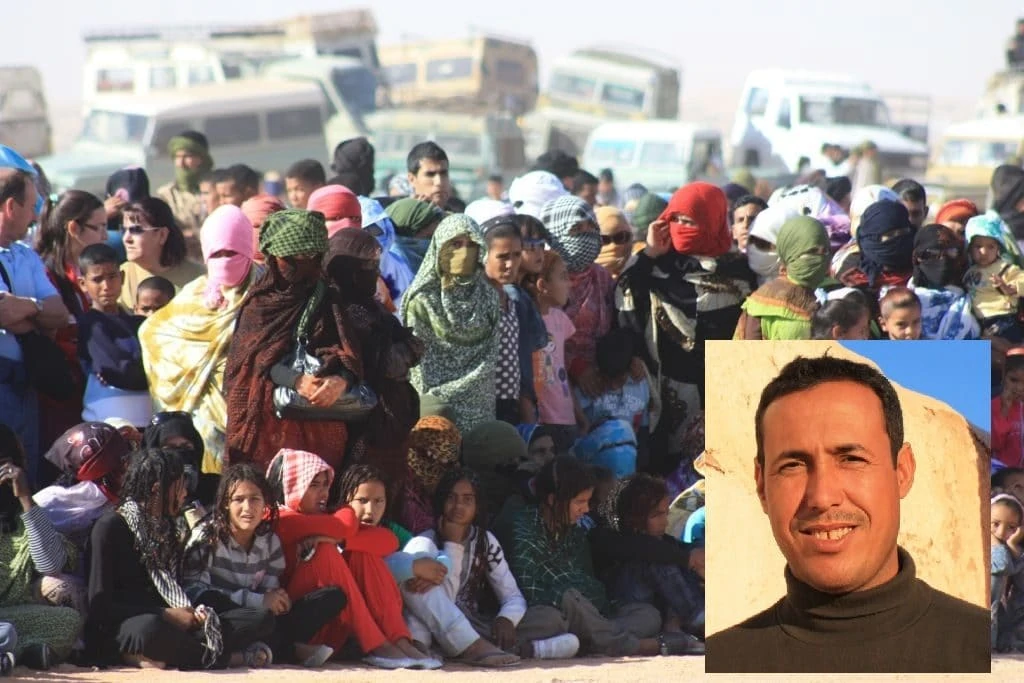Last week, the team from terre des hommes switzerland received a visit from the Sahrawi refugee camp Smara. Zein Sidachmed, who is responsible for youth work on site, reported on the situation in the camps and expressed concern about the growing frustration of the Sahrawi youth - a breeding ground for their radicalisation.
Annette Mokler, Programme Coordinator Western Sahara
Since Morocco's occupation of Western Sahara, the Sahrawi population in the refugee camps on Algerian soil has suffered from a lack of prospects, the poor supply situation and the harsh climatic conditions. The lack of prospects in the camps is particularly discouraging for the young people. The Sahrawi Youth Organisation (UJSARIO) is committed to the interests of Sahrawi youth. terre des hommes schweiz supports youth work in the Smara refugee camp (refugee population approx. 60,000) of UJSARIO Smara. Zein Sidachmed is responsible for the youth work of UJSARIO Smara.
Frustration feeds radicalisation
In an impressive lecture, Zein presented the work and situation of the Sahrawi youth in the camps. He clearly expressed his concerns about the Sahrawi youth growing up in a very fragile context in the Sahara region. More and more young people expressed their frustration at the deadlock in the Sahrawi cause: "They no longer believe that the referendum that is supposed to decide the self-determination of the Sahrawi people will ever be held. Zein warns that for the moment it is still possible to calm the situation, but "a new generation is growing up, so tired of the lack and lack of prospects that they are ready to take up arms again to pursue their claims." As long as there is no economic perspective, no paid decent work and no prospects for a political solution, this trend will not change.
Warning against terrorism and the drug mafia
According to the youth worker, a great danger also emanates from the terrorist movements in the Sahara region and the drug mafias in neighbouring countries such as Mali, Mauritania and Morocco, which try to recruit young people who otherwise see no chance for their lives, who know how to move in the desert and are used to a life full of privation. In particular, he warned against supporting rebel groups, as the warlike conflicts could also bring Islamist groups to power. Even though it is basically positive that dictators are overthrown, there are dangers associated with the destabilization of the systems.
Continuous support important
On several occasions, the visitor stressed the importance of protecting the Sahrawi youth from these influences. The youth worker emphasised that UJSARIO has so far succeeded so well in doing so, and the many years of continuous support from the donors of terre des hommes schweiz have contributed substantially to this. Since there are so many other necessities in the camps - maintaining a health care system and water supply, food supply, etc. - there is hardly any other organisation that takes care of the youth.
Exchange with European host families
Besides the usual youth work, UJSARIO organises the exchange of over 10,000 Sahrawi children to European host families every year. This enables the children to escape the unbearably hot summer months, when the thermometer climbs to 48 degrees Celsius, and to escape the barren camp life for a short time and get to know other cultures. Zein Sidachmed is one of the companions of these children this year. He uses his stay in Europe to visit support groups. This also includes terre des hommes schweiz in Basel.
Western Sahara - the unresolved conflict
Western Sahara was occupied by Morocco in 1975 after the withdrawal of the colonial power Spain. About 150000 Sahraouis fled from the Moroccan attacks with napalm bombs on the civilian population to Algeria, where they have now been staying for over 35 years in four refugee camps in the desert near the town of Tindouf. The Sahrawi Liberation Movement, in 1991, agreed to a ceasefire on the condition that a referendum on the independence of Western Sahara be held. However, this referendum, called for by the UN, is still blocked by Morocco.


